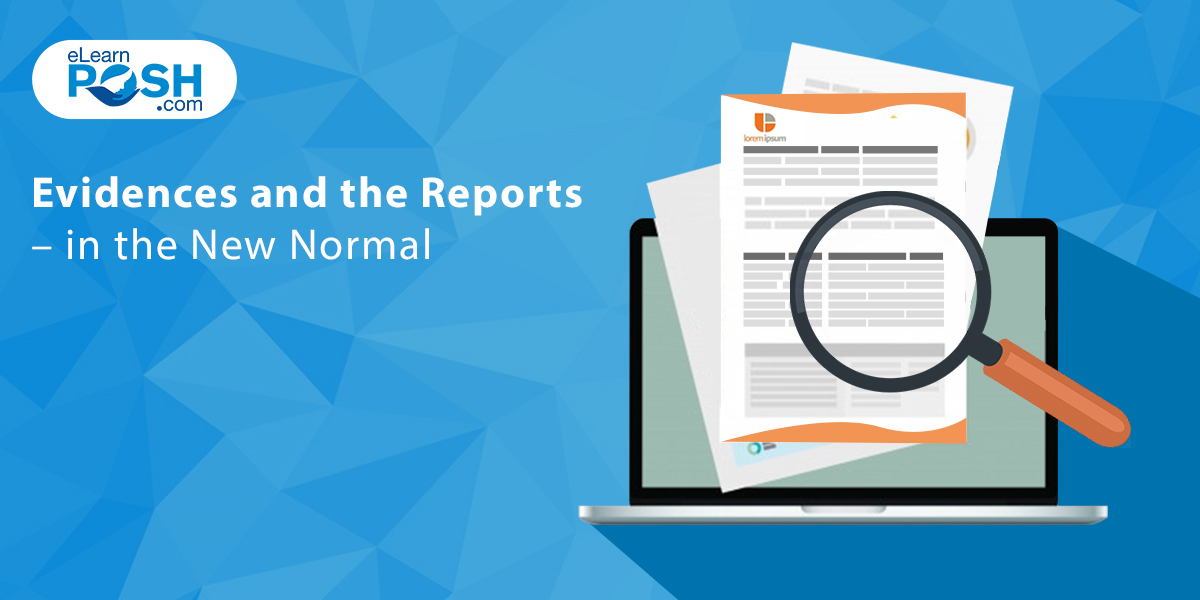
This post is part of the “Comprehensive Guide to POSH Compliance in the New Normal”. If you wish to view the Main blog, click here.
Evidence
IC members may come across several evidences shared by the complainant, respondent, and the witness during an inquiry. Electronic evidences like emails, video or audio recordings, chat logs, WhatsApp messages, social media posts and much more are often critical in concluding the final result of the inquiry. It may often be a question about how electronic evidences are to be preserved and documented.
Regarding electronic evidences, we can refer to Evidence Act of 1872. While the year indicates that it is from the colonial era, Section 65 B (added in the year 2000) provides details on how Electronic Evidences are admissible. Supreme Court has provided further clarity on 14th of July 2020 through its judgment.
Any electronic evidence submitted, if it is not in its original form, would need a certificate assuring its originality. This certificate can be provided by the user who used the device during the period. It can also be the IT or Network Manager or the Director of the company.
To simplify, if Person A submits the WhatsApp chat logs in original form, and a copy of the log is printed, then the print shall be certified by Person A to become admissible. The original electronic evidence as a primary evidence may not need a certification. But the printed copy would need this.
The certification is to ensure that it is a true, untampered copy of the original.
Reports
There are three types of reports that IC may have to generate. Findings Report, Inquiry Report and the Annual Report. While the Annual Report must be filed at the end of the year, we hope the Pandemic situation reduces a bit and we can continue the conventional method. The other two reports were usually handed over to the parties physically. These will change in the New Normal.
Findings Report
The POSH Act reads: “a copy of the findings shall be made available to both the parties enabling them to make representation against the findings before the Committee”
Before proceeding to the final report, IC must create a Findings Report and share it with both parties. Based on this report, the parties may provide a final representation if the findings are observed to be wrong.
This usually is a collection of documents and evidences, collected during various interviews, inquiries, and cross examinations. In a virtual scenario, the IC may share this as compressed file, and preferably encrypted with a password. The password shall be shared only with the user to provide additional security and confidentiality.
This step is crucial as it provides adherence to the principles of natural justice.
Inquiry Report:
Inquiry Report must be submitted to the employer within 10 days of Inquiry completion. This report must be made available to the complainant(s) and respondent(s) involved in the case. IC can share the report as a password encrypted compressed file.
The pandemic has changed working conditions drastically and organizations are on their journey to adapt to these changes efficiently. Let’s ensure that our commitment to keep our workplaces, physical or virtual, is not left behind during this journey.



This context gives more inputs on reports and evidences.
I’ve been browsing online more than three hours today, yet I never found any interesting article
like yours. It’s pretty worth enough for me. Personally, if
all web owners and bloggers made good content as you did, the
net will be a lot more useful than ever before.
I want to to thank you for this excellent read!! I definitely loved every bit of it.
I have you bookmarked to look at new things you post…